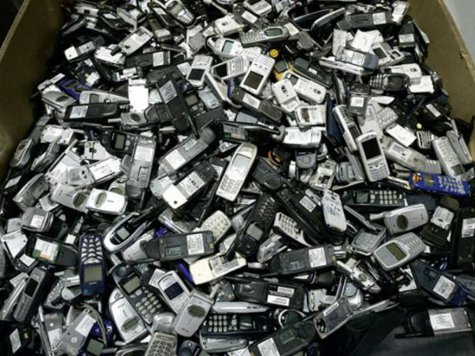
A federal program originally designed to provide rural residents with phone service in case of emergencies is now one of the fastest growing welfare programs. Costing just around $140 million a few years ago, federal spending on the subsidy has exploded to $2.2 billion.
Created in 1984, under President Reagan, the program is funded by a tax on regular phone service. The program was intended to cover the high capital costs of running telephone lines to remote, rural areas. In 2008, however, the program was expanded, through bureaucratic rule-making, to include cell phones. Today, a number of companies offer “free” cell phones and cell phone service plans to low-income people on welfare or food stamps.
The program seems riddled with waste, however. The FCC recently admitted that an audit found almost 300,000 individuals with more than one subsidized phone. The Agency also testified to Congress that the top 5 companies offering phones and service couldn’t verify the eligibility of 41% of the recipients of the free phones.
The history of this program should caution those embracing a new phone subsidy contained in the “Gang of 8” immigration bill unveiled last week. The program, dubbed “MarcoPhones” by some commentators, would provide grants to people living within 100 miles of the border who “lack cellular service” to purchase satellite phones.
The proposal originated in legislation introduced by Sens. McCain and Kyl in 2011, in response to the murder of a rancher who lived in an area with weak cellular coverage. That proposal had very general eligibility criteria, but restricted funding to just $3 million over 2 years. The “Gang of 8” proposal, however, keeps the broad eligibility criteria, but removes any funding restriction.
The original federal program to provide telephone service to residents in rural areas was well-intentioned. Establishing a dedicated funding mechanism, however, enabled the program to continue long after its goal was achieved. The FCC is considering expanding the program even beyond cell phones to also subsidize broadband internet connections.
Government programs, left on their own, will always expand. The “MarcoPhone” program in the immigration bill is a test case. Applying very broad eligibility criteria with no funding restriction is a recipe for potential fraud and waste. It is a very small part of a large bill, but it could have very real long-term fiscal consequences.

COMMENTS
Please let us know if you're having issues with commenting.